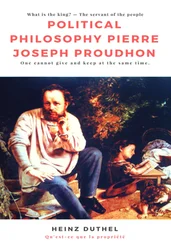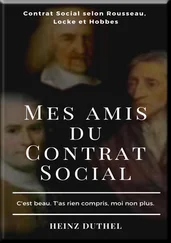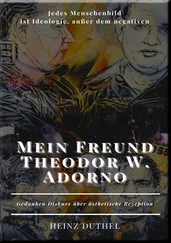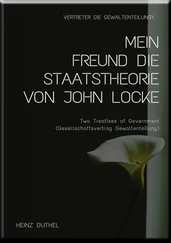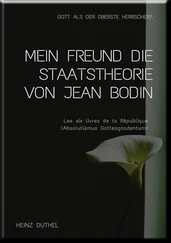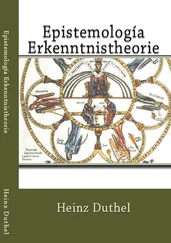Is the elaborated code of Bernstein really so “flexible, detailed and subtle” as some psychologists believe? Isn’t it also turgid, redundant and empty? Is it not simply an elaborated style rather than a superior code or system?
[Labov, 1969 #503, p 192 of Giglioli, p 34 of Keddie]
There may be something in that, but even expressing it has an air of unreality; it can almost not be said. This is a complex issue though, and there is a need to distinguish between diversity in linguistic style on the one hand and the effect of social and educational disadvantage on the other. What is important is examining the discontinuity between the knowledge forms which the pupils possess and those knowledge forms usually awaiting them at school [Mellin-Olsen, 1987 #86, p 21]. Pierre Bourdieu has also commented that an examination of the social conditions tends to be missing from Basil Bernstein’s work:
The realism of the structure inherent in such a sociology of language tends to exclude from the field of research the question of the social conditions of production of the attitude system governing, inter alia, the structuration of language. To make just one example, the distinctive features of the language of the lower middle classes, such as faulty hyper-correctness and proliferation of the signs of grammatical control, are indices among others of a relation to language characterised by anxious reference to the legitimate norm of academic correctness. The uneasiness about the right manner – whether table manners or language manner – which petty bourgeois speech betrays is expressed even more clearly in the avid search for the means of acquiring the sociability techniques of the class to which they aspire – etiquette handbooks and guides to usage. This relation to language can be seen to be an integral part of a system of attitudes to culture which rests on the pure will to respect a cultural code more recognised than known, and on a meticulous respect for rules, a cultural willingness which, in the last analysis, expresses the objective characteristics of the condition and position of the middle strata in the structure of class relations.
[Bourdieu, 1977: 2nd Edition 1990 #39, p 134 note 16 in 1990 Edition]
Pierre Bourdieu, in addition, draws out the active role that schools as social institutions play in the hegemonic trick of making a political imperative appear to be a social necessity:
In even more completely deleting the power of selection to the academic institution, the privileged classes are able to appear to be surrendering to a perfectly neutral authority the power of transmitting power from one generation to another, and thus to be renouncing the arbitrary privilege of the heredity transmission of privileges. But through its formally irreproachable verdicts, which always objectively serve the dominant classes since they never sacrifice the technical interests of the dominant classes except to the advantage of the social interests, the School is better able than ever, at all events in the only way conceivable in a society wedded to democratic ideologies, to contribute to the reproduction of the existing order, since it succeeds better than ever in concealing the function it performs.
[Bourdieu, 1977: 2nd Edition 1990 #39, p 167]
It is important that to look at what we can say about the processes of domination themselves, and Basil Bernstein has some contribution here:
Although an elaborated code does not entail any specific value system, the value system of the middle class penetrates the texture of the very learning context itself. Elaborated codes gives access to the alternative realities, yet they carry the potential of alienation, of feeling from thought, of self from other, of private belief from role obligation.
[Bernstein, 1971 #504, p 186]
The matter of ‘alienation’ was central to Karl Marx’s view of how capitalist production operated to separate labour power, invested in the individual, and the ownership of the commodities that were the product of this labour power. Basil Bernstein’s use of the concept here is becoming significant for the school curriculum. To continue to operate as a form of social reproduction, the school curriculum and the classrooms that embody it have to continue to operate this distancing of self from other, in order for the discrimination in cultural disposition to be operative. It is not however sufficient for this merely to operate in the schools, for it might be that this would exacerbate schools as seats of resistance [Giroux, 1983 #15]. The discrimination must be total and operate both within and beyond schools, as Basil Bernstein illustrates:
Mothers in middle class relative to the working class place greater emphasis upon the use of language in socializing the child into the moral order in disciplining the child, in the communication and recognition of feeling.
[Bernstein, 1971 #504, p 196]
This raises another issue – the effect social and economic conditions have upon the form and style of language used by different social groups, and whether or not schools and teachers might compensate or at least acknowledge the divergences. What all of this suggests it that not only is social class background important in structural terms, but that it is also important to consider the place social class differences hold in teachers imagery.
2.3 Summary of the Key Themes in Chapter 2
A major theme in this chapter is a representation of the structure of society and the dialectical relationship between objective structures and stratification, and the activity of groups and individuals that make up that society, as we know it. I offer a perspective drawn form Karl Marx of how the structure of society is influenced by the dominant relations of production. It is the conflicting demands inherent in this process of production that results in the society illustrating much injustice and social division. In turn, the conflicting demands and inherent contradictions in this process result in considerable alienation or separation of the individual from the activities they are forced to engage in, be it manual labour or learning mathematics. In order to sustain the relations of production, and control the effects of alienation, certain forms of social control are utilised. These are supported by the imposition of hegemony, wherein the ideas and arguments in support of the status quo obtain dominance and priority over all others. The means by which these hegemonic ideas are imposed and sustained are both subtle and extensive. At this level, the significance of the teaching of mathematics is to play a part in the generation and reproduction of hegemonic ideas. This is carried out through structural and organisational mechanisms by placing pupils in schools for example and through influencing techniques by favouring particular – dominant – ideas, practices and schemes of thought at the expense of alternatives. This process confers cultural capital on pupils in certain social groups, which eventually becomes transformed into economic capital. One limitation in much current analysis is the failure to conceptualise the structure of teachers’ social imagery. This chapter represents the foundations of my study by presenting the elements of the theoretical framework – which I have italicised above. In order to understand better the influencing techniques, I need to look next into a conceptualising human agency.
Chapter 3 – Conceptualising Human Agency
Synopsis of Chapter 3
Writing this chapter has been particularly challenging – and has been described by one colleague as my “Zen and the Art of Motorcycle Maintenance”. This seems rather over-ambitious, but I am trying to bring together some ideas that might be considered as sitting uneasily together. In this chapter I introduce the conceptual framework I adopt in the study. This framework involves the elaboration of three key areas from social theory, Pierre Bourdieu’s notion of habitus, the notion of ideology and its relation to underlying social ideas, and Michel Foucault’s analyses of discursive formations. I spend some time articulating the significance of these three key themes because it seems to me to be very important that wherever possible I clarify what might be misunderstandings. I want to argue that classroom decisions made by teachers (either interactive or prior planning decisions) are not rational choices made by looking objectively at the situation. There are influences and structures of thought which impose themselves on teachers. It is these influences and structures of thought that are included in the notion of ideology. It is this level of thinking that is usually avoided in many studies of teacher thinking, largely I conjecture because of the political nature of the ideas it represents.
Читать дальше




